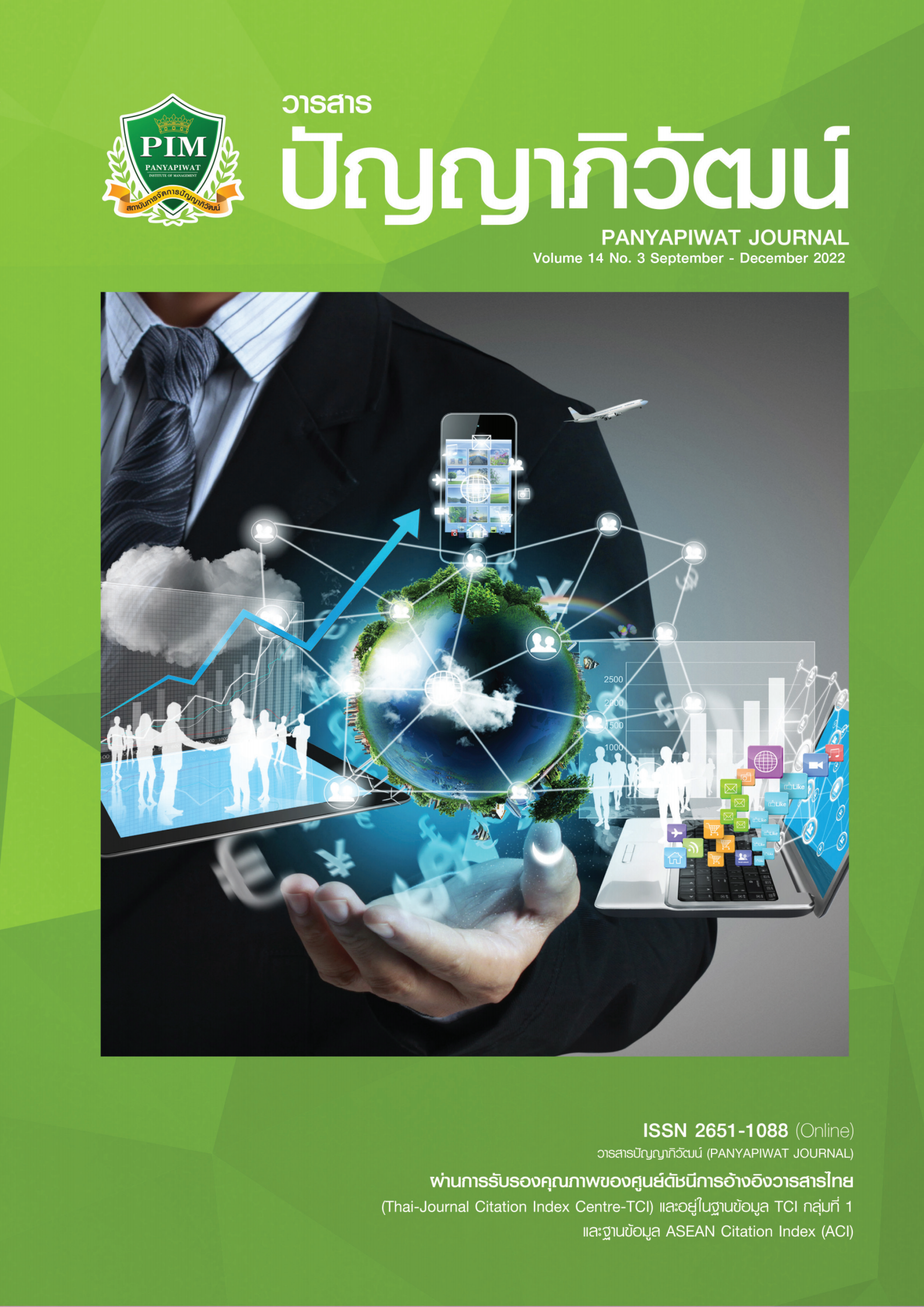DEVELOPMENT OF LEARNERS’ ACHIEVEMENT BY USING RESEARCH-BASED PROCESS FOR INSTRUCTIONAL MANAGEMENT IN INDUSTRIAL COURSES UNDER THE OFFICE OF THE VOCATIONAL EDUCATION COMMISSION
Main Article Content
Abstract
The objectives of this research were (1) to find the index of learning effectiveness of the students who learned with the use of research-based process for instructional management in industry courses under the Office of the Vocational Education Commission; (2) to compare the learning achievements of the students who learned with the use of research-based process, the students who learned with the use of the research results, and the students who learned under traditional instruction in the industry courses under the Office of the Vocational Education Commission; and (3) to assess the students’ satisfaction with the use of research-based process for instructional management in industry courses under the Office of the Vocational Education Commission. The samples were obtained from 45 second year students in the Vocational Certificate Program in Electrical Engineering during the first semester of the 2020 academic year. The employed research tools were (1) learning management plans, (2) an achievement test, and (3) a satisfaction assessment form. Data were analyzed with the use of percentage, mean, standard deviation, and one-way ANOVA. The results of the research were as follows:
1. Regarding the results of finding the index of learning effectiveness of the students who learned with the use of research-based process for instructional management in industry courses, it was found that after the learning, the scores of the students increased by 82.40 percent, 80.95 percent, and 53.17 percent, respectively.
2. The results of the comparison of all 3 teaching-learning management styles during using the research process, Using the research rcsults, and the level, namely, traditional instruction management showed that there were 2 pairs of statistically significant differences at the .05 level, namely, the instructional management using the research process and the traditional instructional management, and instructional management using the research results and the traditional instructional management.
3. The overall satisfaction of the students with the use of research-based process for instructional management in industry courses under the Office of the Vocational Education Commission was at the highest level, with the overall rating mean 4.78.
Article Details

This work is licensed under a Creative Commons Attribution-NonCommercial-NoDerivatives 4.0 International License.
I and co-author(s) certify that articles of this proposal had not yet been published and is not in the process of publication in journals or other published sources. I and co-author accept the rules of the manuscript consideration. Both agree that the editors have the right to consider and make recommendations to the appropriate source. With this rights offering articles that have been published to Panyapiwat Institute of Management. If there is a claim of copyright infringement on the part of the text or graphics that appear in the article. I and co-author(s) agree on sole responsibility.
References
Banchonhatthakit, P. (2012). Development of teaching and learning through research-based learning management in health education and health promotion. Journal of Public Health Research Khon Kaen University, 5(1), 97-105. [in Thai]
Chanpheng, P. (2011). Organization of research-based learning activities to develop knowledge and research skills of students of the Faculty of Education. Khon Kaen University: KKU Research Journal, 1(2), 21-44. [in Thai]
Barbara, C. (1997). Growing up gifted (5th ed.). Prentice-Hall.
Dunn, R., & Dunn, K. (1995). Teaching secondary students through their individual learning styles: Practical approaches for grade 7-12. Allyn and Bacon.
Fahchaiyaphum, K. (2011). Comparison of educational achievement in food and nutrition, analytical thinking and creativity of grade 5 students studying with research-based learning management and conventional learning management [Master’s thesis]. Mahasarakham University. [in Thai]
Hassan, S. (2013). Applying research-based learning in medical education through the route of special study modules: Notes from the UK. SA-eDUC Journal, 10(1), 1-26.
Khammanee, T. (2005). Pedagogical science (4th ed.). Dan Suttha Printing. [in Thai]
Khammanee, T. (2017). Pedagogical science: Knowledge for effective learning management. Chulalongkorn University Press. [in Thai]
Ministry of Education. (2002). Research for learning. Teachers Council Ladprao Printing House. [in Thai]
Ministry of Education. (2013). Training guide for speakers paradigm adjustment and curricula development of educational institutions. Teachers Council Ladprao Printing House. [in Thai]
Phithiyanuwat, S., & Boonterm, T. (2004). Research-based teaching and learning: Compilation article. In S. Paitoon (Ed.), Research-based teaching. Center for Academic Tables and Documents, Faculty of Education, Chulalongkorn University. [in Thai]
Phithiyanuwat, S., & Boonterm, T. (2020). Office of vocational education commission. Goldsmith. http://km.goldsmith.ac.th/files/1209060883714449_12112111112607.pdf [in Thai]
Rattanaubol, A. (2004). Research-based teaching by using promise of learning. In Research-based Teaching (pp. 61-79). Faculty of Education, Chulalongkorn University. [in Thai]
Saenphao, W. (2009). Administrative factors affecting the decision to study in a Private Vocational School Chiang Rai Educational Service Area 1 [Master’s thesis]. Graduate school Chiang Rai Rajabhat University. [in Thai]
Sinlarat, P. (2012). Principles and techniques of teaching at the higher education level. Printing House of Chulalongkorn University. [in Thai]
Sitchinda, P. (2009). Adjusting learning and teaching with research outside the classroom. RBRU. http://node.rbru.ac.th/article/article31.pdf [in Thai]
Thammachat, J. (2009). Research and development of a research-based learning management model in educational research courses. PSU. http://kb.psu.ac.th/psukb/handle/2010/8267 [in Thai]
Tishuka, P. (2013). The development of teaching and learning models using research as a base curriculum development course for teacher professional students. Thapra Palace Library. http://www.thapra.lib.su.ac.th/objects/thesis/fulltext/snamcn/Phichittra_Teesuka_Doctor/fulltext.pdf [in Thai]
Wichadee, S. (2011). Education in a new paradigm: Research-based learning. Executive Journal, 31(3), 26-30. [in Thai]
Wiphatiprater, T. (2014). The effects of research-based learning on students’ knowledge of ASEAN culture. Education Journal Naresuan University, 16(1), 54-62. [in Thai]
Wongnutararot, P. (1999). Organization and administration of vocational education. Pim-Dee. [in Thai]


